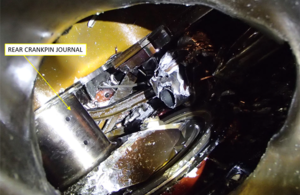The government has today (26 May 2022) published Flightpath to the future – a strategic framework for the future of aviation, focusing on the next 10 years.
This strategic framework highlights government’s continued commitment to the sustainable growth of the aviation sector, recognising the vital importance of aviation to the UK. From supporting economic growth, to creating jobs across the UK, aviation adds huge value to our nation.
It also has an essential role to play in the personal value it provides to individuals and businesses, providing connections all around the world.
The aviation sector has faced unprecedented challenges during the COVID-19 pandemic and recovery is an essential part of our plan for the future.
In March, the UK became the first major economy in the world to remove all COVID-19 related travel measures and restrictions for all passengers entering the UK. This is a really important milestone and marks a turning point for aviation in our journey back to pre-pandemic normality.
The publication of ‘Flightpath to the future’ recognises the importance of looking ahead for aviation. It takes into account the importance of supporting sector recovery, whilst also recognising the range of opportunities and challenges facing aviation over the medium term.
From making the most of Brexit and trade opportunities, to embracing new technologies and decarbonising the sector, the next 10 years will play a defining role in the future of UK aviation.
‘Flightpath to the future’ sets out the government’s key priorities, including a 10-point plan for delivery. The 10-point plan focuses on how we can achieve our ambition of creating a modern, innovative and efficient sector that is fit for the future.
The government is committed to working closely with the aviation sector to build back better and greener than ever before, with an ambition of retaining our position as one of the strongest aviation sectors in the world.
An essential aspect of this will be close engagement between the government and the sector, building on positive engagement that has been fundamental during the pandemic.
Alongside publishing ‘Flightpath to the future’, the government is therefore also launching an Aviation Council, focused on supporting the implementation of the commitments established through this strategic framework.
The council will be jointly chaired by the Minister for Aviation and an industry representative, and will include representatives from across the whole sector, a range of government departments and the devolved administrations.
Our 10-point plan for the future of UK aviation covers the following areas:
Enhancing global impact for sustainable recovery
1. Recover, learn lessons from the pandemic and sustainably grow the sector.
2. Enhance the UK’s global aviation impact and leadership.
3. Support growth in airport capacity where it is justified, ensuring that capacity is used in a way that delivers for the UK.
Embracing innovation for a sustainable future
4. Put the sector on course to achieve jet zero by 2050.
5. Capture the potential of new technology and its uses.
Realising benefits for the UK
6. Unlock local benefits and level up.
7. Unleash the potential of the next generation of aviation professionals.
8. Make the UK the best place in the world for general aviation.
Delivering for users
9. Improve the consumer experience.
10. Retain our world-leading record on security and safety with a world-leading regulator.
Implementing the 10-point plan will play an important role in meeting government and sector ambitions for the future of aviation. The government recognises that the sector is currently in the early stages of recovery and there are a number of challenges ahead.
We will work hand in hand with the whole aviation sector to implement the commitments set out in ‘Flightpath to the future’ and ensure a bright future for UK aviation.
We have a real opportunity to not only see passenger demand return and the sector to flourish again, but also to modernise and create a greener, more sustainable sector for the future. A sector that leads the way internationally on key issues, be that learning lessons from the pandemic, delivering jet zero or embracing the opportunities presented by aviation innovation.
The UK will continue to have one of the strongest aviation sectors internationally, including always putting consumers first and having the safest and most secure sector in the world.
I have deposited copies of ‘Flightpath to the future’ in the libraries of both Houses of Parliament.
See also, Jobs and passengers at the heart of government’s 10-point plan for aviation.

